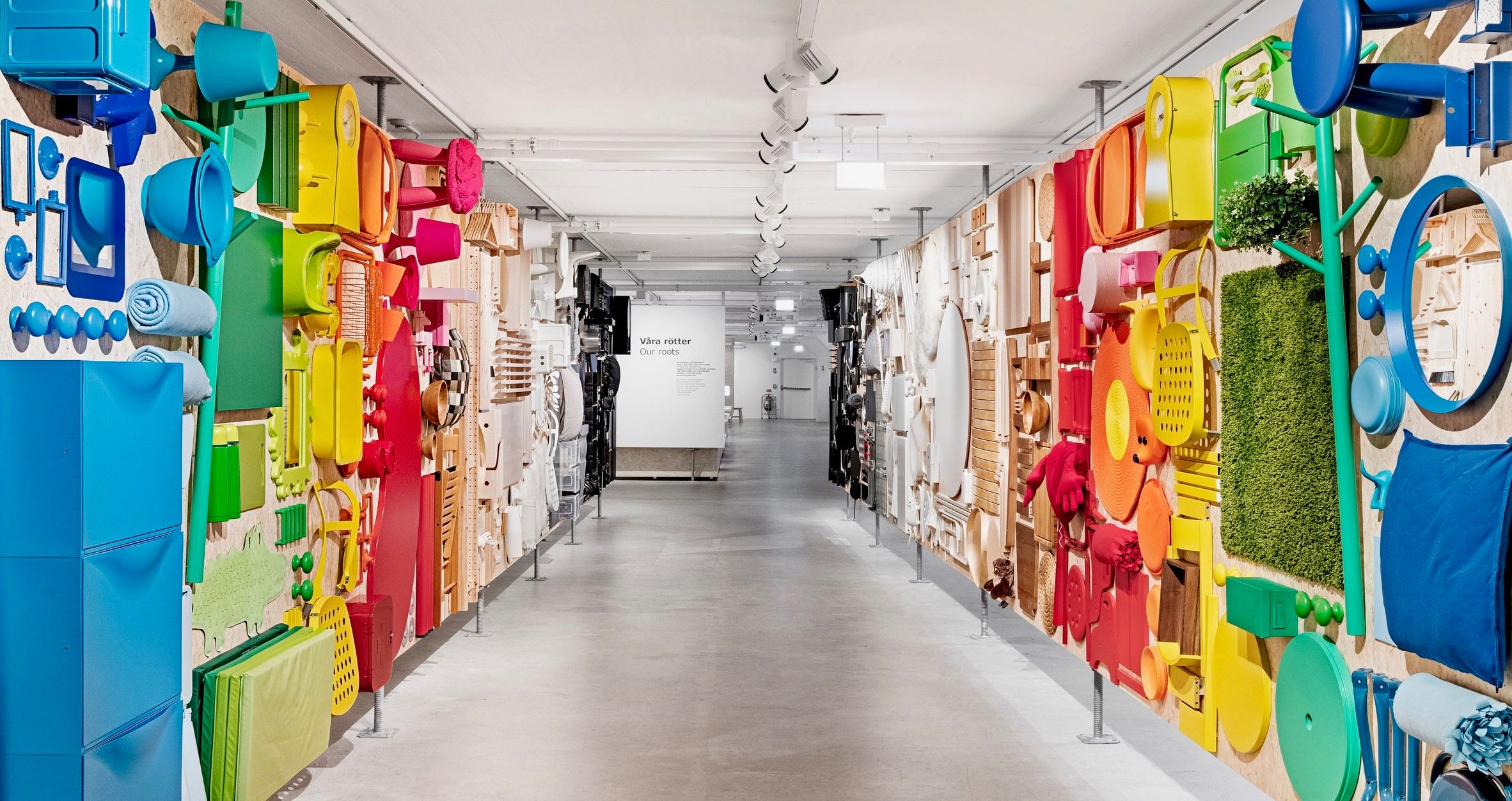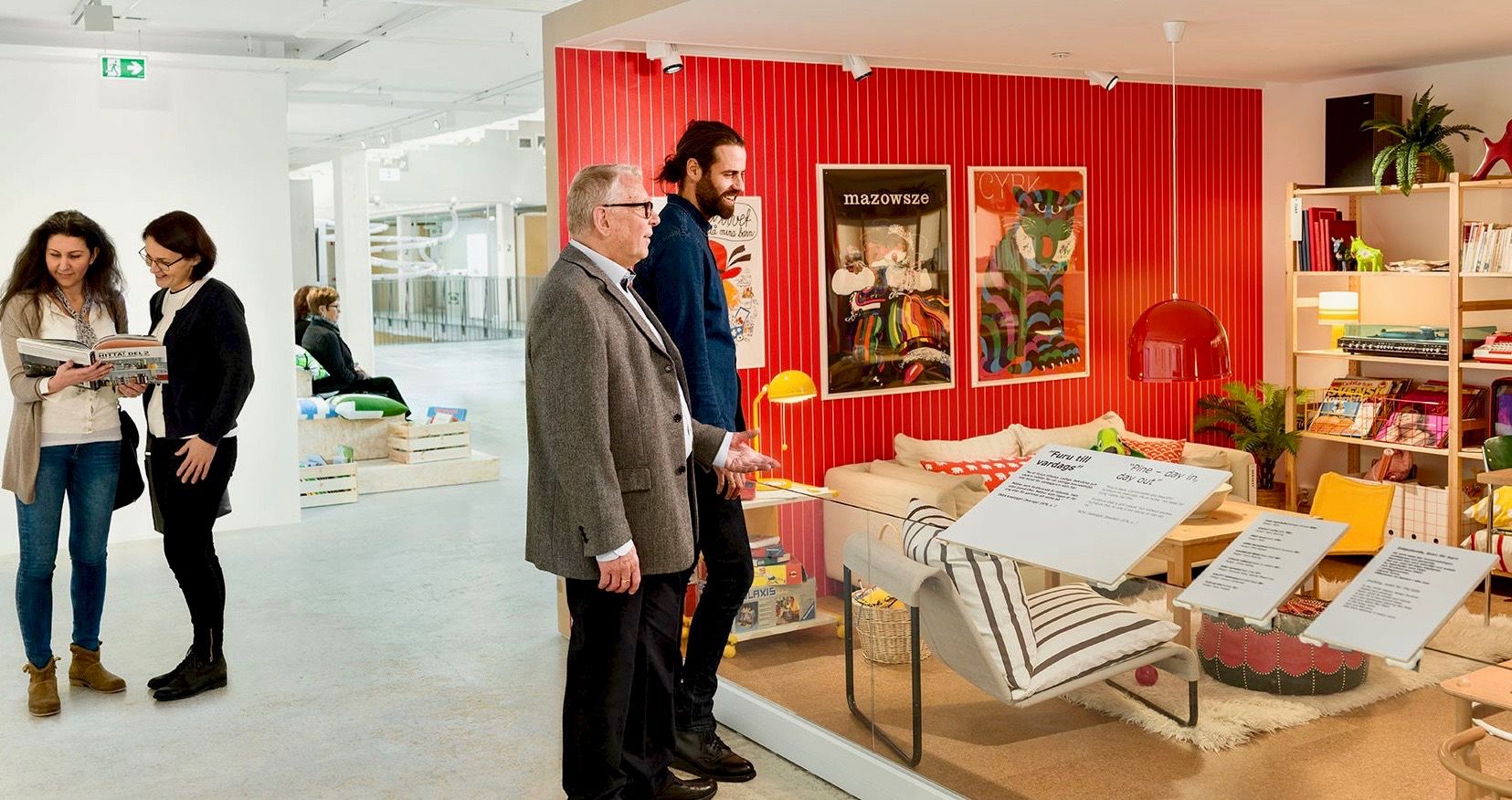IKEA opened its first museum in Sweden last month. The museum is housed in the first Ikea store in Älmhult, which opened in 1958, and revisits the history of the brand. The facade of the 3500 m2 building was restored to recreate the original appearance of the store.
Founded 1943 by Ingvar Kamprad, when he was 17, the company started selling furniture five years later. The museum houses artifacts from Kamprad’s early business ventures, which included selling matches and fish. The entrepreneur died earlier this year at 91.
The exhibition features the brand’s classic designs, including the Klippan sofa and Billy bookcase, and of course, the museum restaurant features the store’s iconic meatballs on its menu. The museum, which opened on June 30, can be visited seven days a week.
Designed by Wilkinson Eyre Architects and Uulas Arkitekter, the museum includes a permanent exhibition of more than 20,000 pieces. The main exhibition is divided into three themes: our roots, our story, and your stories. Our Roots explores daily life in early twentieth century Småland and the childhood of Kamprad. Our Story documents the innumerable innovations, successes and failures that IKEA has experienced since 1958. And Your Stories showcases customer homes and how they’ve incorporated IKEA products.
A temporary exhibition space, which will be updated twice a year, displays a kitchen installation that focuses on children, people with disabilities and the future of cooking.
The town of Älmhult, which serves as IKEA's design headquarters, also features a hotel dedicated to the brand. The town, a two-hour train ride from Copenhagen, is a great stop for IKEA lovers who want to explore the history of the brand, buy limited-edition furniture, and sample the legendary Swedish meatballs.
As of 2017, Ikea had 403 stores in 49 countries worldwide, drawing 936 million visitors and registering sales of €38.3 billion. Kamprad, who stepped down from daily management thirty years ago, had a net worth of approximately $52 billion. Though he moved to Switzerland in 1976 to save on taxes, he returned to Sweden in 2014. Known for running a tight ship, Kamprad’s personal philosophy was “wasting resources is a personal sin.”
RELATED: NYC Is, Of Course, Getting Its Own Museum Of Pizza
Though Kamprad was briefly involved in the Sweden Socialist Union, a fascist political organization during WWII, which prompted security police to set up a file on him, the billionaire later stated that his involvement was youthful "stupidity", and the "greatest mistake" of his life.


